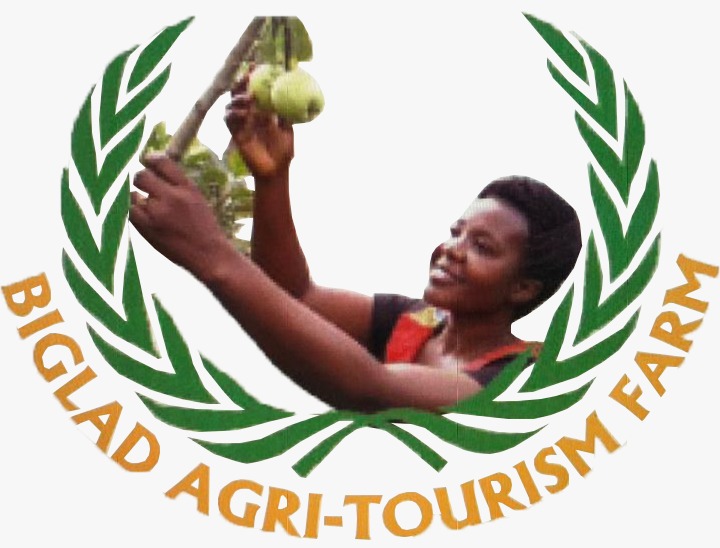Agriculture and the global goals:
The Sustainable Development Goals (SDGs) of the United Nations emphasize the necessity of
significantly raising productivity and incomes among smallholder farmers all over the world as
part of the organization's ambitions to end hunger, achieve food security and improved
nutrition, and promote sustainable agriculture. In addition, it is recognised that food
production systems must preserve genetic diversity and healthy ecosystems, especially in
light of the effects of climate change. Since many countries in sub-Saharan Africa continue
to have high rates of rural poverty and food insecurity, the region's agricultural growth is
crucial. Food production systems also face a variety of interrelated problems, including
declining soil fertility, climate change, and heavy land use. Recent years have seen a
renewed emphasis on agricultural modernization among several African governments and
development partners.
This is the situation in Uganda, where efforts to boost agricultural growth through the transfer
of cutting-edge technology and a greater focus on the market are an essential component
of a larger "poverty eradication" strategy. The 1990s saw a major decline in poverty in
Uganda, in part due to smallholder farmers' socioeconomic advancements. Recently,
though, focus has switched to a strategy that benefits larger landowners. This strategy is
criticized for having negative impacts on smallholders and the environment. Such criticism is
consistent with widespread calls for a "paradigm shift" and "rethinking agriculture and the
search for more desirable alternatives" in response to unsustainable and unfair effects of
agricultural modernisation.
Agroecology is one solution that is gaining popularity because it uses ecological principles to
design and manage farming systems in a way that makes them sustainable, resilient, and
productive. Agroecology emphasizes the capacity of local communities to produce and
scale-up innovations through farmer-to-farmer research and extension initiatives, and is
"knowledge intensive (rather than capital intensive), tends toward small, highly diversified
farms."
Working with women
Smallholder farmers account for 80% of agricultural production in Sub-Saharan Africa. And
the female labour force participation rate in agriculture is the highest in the world. However,
life is difficult for rural women. Women do not have the same rights as males and are
sometimes forced to juggle home tasks and agricultural work - sowing, weeding, and
harvesting crops, as well as cooking for their family and collecting firewood and water. And it
can be considerably more difficult for women to achieve the same results on their farms as
males since they frequently have less access to land, agricultural extension services, and
technologies.
broader implications. When women flourish, they tend to invest more in their homes and
families, providing more nutritious meals for their children and keeping them healthy. In
reality, the UN Food and Agriculture Organization estimates that if women had equal access
to productive resources as males, they could raise farm yields by 20-30%, reducing the
number of hungry people in the world by 12-17%.
Working with medium-sized businesses
BIGLAD Agri-Tourism Farm techniques are bottom-up and territorial in nature, assisting in the
delivery of contextualized solutions to local problems that put people at the centre. BIGLAD
Agri-Tourism Farm promotes a holistic and integrated approach to the design and
management of sustainable agriculture and food systems that incorporates ecological and
social concepts and principles. It aims to improve the interactions of plants, animals, humans,
and the environment while also addressing the need for socially equitable food systems in
which people have control over what they eat and how and where it is produced. It is no
longer possible to look at food, livelihoods, health and the management of natural resources
separately. BIGLAD Agri-Tourism Farm embraces systems–thinking through holistic
approaches needed to address these complex and interdependent challenges.
Sustainability: BIGLAD Agri-Tourism Farm assists enterprises in selling inexpensive, appealing
products and services to low-income households where they can do so economically,
allowing them to continue and grow their operations over time (and when our interventions
end).
Scalability:To meet this increasing demand, BIGLAD Agri-Tourism Farm encourages more
home investment in enhanced food systems in collaboration with local companies. Ongoing
program investments are maintained to a minimal after early investments to ignite the new
market. With the help of local governments, the private market can expand as additional
enterprises copy new product and service models or enter new markets.
Our three thematic areas will be underpinned by five cross-cutting themes:
Climate action: We will aim to minimize greenhouse gas emissions while also
strengthening communities' resilience and adaptation capabilities to climate
change.
Gender equality: We will design projects to be gender-sensitive and include
meaningful outcomes for women’s economic empowerment.
Youth employment: Throughout the value chain, we will emphasize the creation of
job possibilities for young people.
Resilience: We will improve the ability of communities, businesses, and ecosystems to
mitigate and respond to shocks.
Agri-tech: We will embrace technology at every stage of the value chain.
The notion of food systems, which describes the relationships between producers, consumers,
the environment, and policy, is a beneficial method of combining the approaches and
serves as the prism through which we analyse our approaches, interventions, and programs.
Our approach
Farms and ecosystems managed using agro-ecological methods to improve the four
dimensions of food security - availability, access, stability, and utilization - which contribute to
lowering rural poverty, strengthening resilience, encouraging local development, and
improving the livelihoods of communities.
Customers (such as households) are willing to pay for organic manure
Businesses (medium-sized businesses) see business opportunities in waste and
sanitation
Financing institutions offer credit products to customers and businesses
Local governments are responsible for setting rules and regulations.
